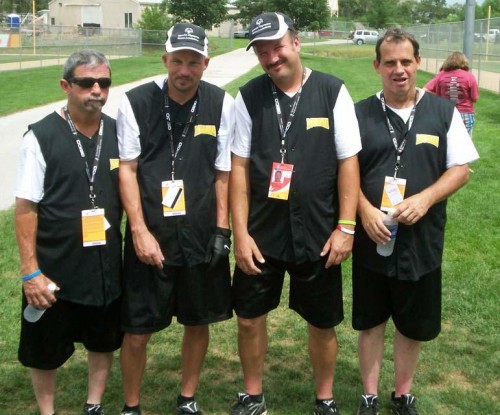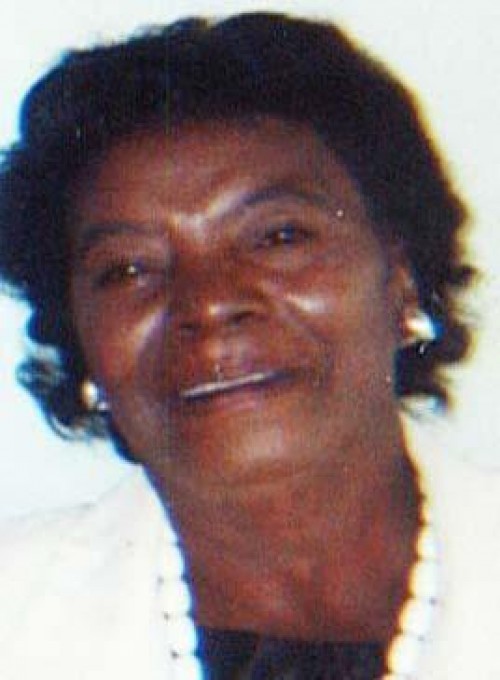
Terrebonne special athletes go for gold
September 21, 2010
Geraldine Spencer
September 23, 2010It’s been just under four months since the Secretary of the Interior Ken Salazar’s initial ban on deep water drilling in the Gulf, and just under four months of constant struggle for those directly and indirectly tied to the oil and gas industry.
“Our parish symbols, the oil rig and a fishing vessel represent the importance of the oil and gas industry and the seafood industry to the economy of this great parish,” Terrebonne Council Chairwoman Arlanda Williams wrote in a letter to the Bureau of Ocean Energy Management, Regulation and Enforcement (BOEM). “Approximately 60 percent of our workforce directly or indirectly related to the oilfield and approximately 20 percent directly or indirectly related to the seafood industry.”
Williams presented this letter in front of a panel of other elected officials and the director of BOEM Michael Bromwich on Sept. 13 in Lafayette.
“We expressed urgency to get this information out and completed before the Nov. 30 deadline and to consider all factors. All of us had the same tone on our panel and we all talked about how the moratorium was ruled arbitrary and capricious, and asked how we can go on knowing its been ruled that way,” she said.
Lt. Gov. Scott Angelle addressed the sense of urgency to Bromwich as well.
“We are in need of urgency in every way, shape and form to lift this moratorium,” he said. “We have had six recessions in this country since 1972 and prior to each one of them the price of oil saw a sustained increase over the previous year … the potential for supplies being reduced, energy prices going up and more Americans out of work in a faltering economy should not be our nation’s legacy to this tragedy.”
According to a data report printed by the Times-Picayune which illustrated the top 20 cities in southeastern Louisiana with the most oil and gas jobs, three Houma zip codes took first, second and ninth place totaling 5,883 jobs. That isn’t including Schriever’s 128 jobs and Gibson’s 101 jobs, giving Terrebonne Parish a grand total of 6,062 jobs affected.
In that same data report, Lafourche totaled 1,269 jobs between Golden Meadow, Cut Off, Lockport and Thibodaux.
Some of the highest taxpayers for 2009 in Terrebonne, Lafourche and St. Mary Parishes are the oil and gas companies, and have been feeling the strain since May 28.
“We are definitely affected by the moratorium,” St. Mary Parish President Paul Naquin Jr. said. “There have been more and more layoffs due to it, and it is starting to affect all of our companies that have to do with the oil, and if the moratorium goes past this month it’s going to affect even more jobs.”
And even though shallow water drilling hasn’t been affected by the blanket moratorium, it’s taken a hit nonetheless.
“It’s still very slow in getting permits for new wells, under the Notice To Lessee 06,” Executive Vice President of Apache Corporation Jon Jeppesen said. “And the industry has had very few permits, and all of those have been gas permits, not for oil wells. It’s a very slow process because [the government is] requesting a very large amount of information which can take weeks to gather info in a lot of cases, and once we supply it we are not getting anything back.”
Terrebonne Parish President Michel Claudet said he believes there is a de facto moratorium on shallow water drilling as a result of the NTL regulations not issuing permits.
“My parish depends on services related to the oilfield industry,” Williams stated in her letter. “Thus when one company reduces its spending with numerous other companies who supply that operation, those suppliers lose their business [and] they lose their ability to spend dollars on their supplies and services and can be forced to lay off employees.”
Williams stressed this effect is only from one derrick barge that services the shallower waters, where permits have not been issued.
Jeppesen also said a third of shallow water rigs aren’t working right now.
“The moratorium is not supposed to affect us in shallow water, in deep water we’ll just have to wait and see. I suspect it will be slow as well, but it may not matter because if you don’t give permits you can’t get rigs going to work,” he said.
If the moratorium is lifted prior to the Nov. 30 deadline, Jeppesen added companies will, at the very least, have some time to plan to meet the regulations in getting a deep water permit.
But until then, many people are still left without work.
“The backbone of the parish is basically oil field and seafood,” Michel Claudet said, who showed concern for workers unable to be compensated as a result of the moratorium. The $20 billion BP fund, now under Kenneth Feinberg, has no jurisdiction over moratorium claims.
“We are going to be making budget cuts in parish budget to react to that situation,” Claudet said. “But this is a time when Terrebonne Parish needs to work on diversification and maintain non-oil field and non-seafood industries to keep our economy moving forward, like the retail area.”
Claudet said all departments will be cut this year by 5 percent, essentially eliminating any vacant positions.
But even with the oil and gas job market on downward spiral, local officials remain hopeful for a positive future.
“I think you’re going to see some changes once the bottom kill is secure,” Naquin said. “I think our president will make a decision after that and lift the moratorium hopefully. I think that’s what’s going to happen once we get the well secure and dead.”









